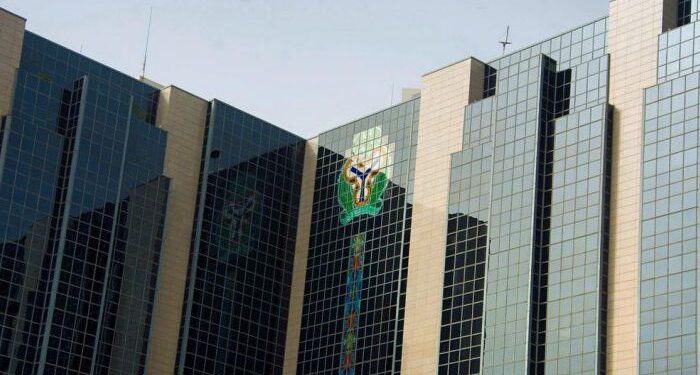Nigeria’s mounting debt obligations have once again come into sharp focus as the Central Bank of Nigeria (CBN) disclosed that the country spent $2.86 billion on debt service between January and August 2025. The revelation underscores growing concerns about the burden of external debt repayments on the nation’s fragile foreign reserves and overall economic stability.
According to figures released by the apex bank, the bulk of the payments went toward meeting obligations on Eurobonds and multilateral loans, with additional settlements for bilateral arrangements and commercial borrowings. The CBN’s data showed that Nigeria’s debt service payments have continued to climb in tandem with rising external borrowings and fluctuating global interest rates. Analysts say the trend is putting pressure on the nation’s fiscal space and limiting the capacity to fund critical development projects.

Nigeria’s external debt stock stood at $42.1 billion as of June 2025, a significant increase compared to the $39.6 billion recorded a year earlier. This steady rise reflects the federal government’s continued reliance on external borrowings to finance budget deficits, infrastructure projects, and economic stabilization programs. With debt service costs already crossing $2.8 billion in just eight months, experts warn that the annual figure could surpass $4 billion by year-end if no urgent measures are taken to restructure obligations or ease repayment pressures.
Economists are particularly worried about the implications of such large outflows on Nigeria’s foreign reserves, which remain under strain from reduced oil receipts and foreign exchange volatility. Despite recent improvements in oil production, crude earnings have not been sufficient to offset rising import bills and debt service commitments. As a result, Nigeria’s reserves have hovered around $33 billion in recent months, raising concerns about the ability of the country to sustain its obligations without depleting vital buffers.
The situation is further complicated by the exchange rate dynamics. The naira, which has experienced sharp depreciation in the last year, continues to trade above ₦1,500 to the dollar in the parallel market despite modest stability in the official window. Analysts argue that the weaker naira has increased the cost of servicing external debts, as the government requires more local currency to meet dollar-denominated obligations. This development, they say, is crowding out resources that could have been directed toward domestic priorities.
The Debt Management Office (DMO) has defended Nigeria’s debt strategy, maintaining that external borrowings remain within sustainable thresholds. However, fiscal experts note that debt sustainability goes beyond debt-to-GDP ratios, emphasizing instead the rising cost of debt servicing relative to government revenues. With debt service-to-revenue ratios already exceeding 70 percent in 2024, Nigeria faces the risk of fiscal imbalance if revenues do not grow significantly.
The federal government has initiated several revenue-boosting measures, including tax reforms, digital revenue collection systems, and efforts to expand the tax net. Recently, the Federal Inland Revenue Service (FIRS) introduced measures exempting key sectors such as agriculture and education from certain taxes to encourage productivity, while tightening compliance in other areas. While these initiatives may boost revenue over the medium term, experts argue that Nigeria’s immediate debt service pressures require short-term strategies, including renegotiating repayment terms and seeking debt relief in some quarters.
Global economic conditions have also contributed to Nigeria’s debt challenges. Rising global interest rates have increased the cost of servicing floating-rate loans, while geopolitical tensions have disrupted oil markets and kept investment inflows uncertain. Investors remain cautious, demanding higher yields on Nigerian bonds, which further increases borrowing costs for the government.
The debt service figures have sparked debates among policymakers, economists, and civil society groups about Nigeria’s fiscal direction. Critics argue that excessive reliance on borrowing has left the country vulnerable to external shocks and limited fiscal flexibility. They warn that if unchecked, the rising debt service burden could erode the benefits of infrastructure investments, perpetuating a cycle of dependency and underdevelopment.
On the other hand, supporters of the government’s borrowing approach argue that Nigeria’s development financing needs are so vast that external borrowings remain inevitable. They point to ongoing road construction, railway projects, and energy sector investments as evidence that borrowed funds are being channeled toward productive use. However, even these advocates admit that the repayment pressure is becoming unsustainable and must be addressed through better debt management.
The International Monetary Fund (IMF) has advised Nigeria to strengthen revenue mobilization and cut down on wasteful spending. It also emphasized the importance of diversifying the economy away from oil dependency to reduce vulnerability to global price swings. With oil accounting for more than 80 percent of foreign exchange earnings, Nigeria remains exposed to global energy shocks, complicating its debt repayment capacity.
As the debate rages on, ordinary Nigerians remain concerned about the practical implications of rising debt servicing costs. Citizens worry that higher allocations to debt repayments will translate to fewer resources for healthcare, education, job creation, and social welfare programs. Already, inflation remains elevated at over 28 percent, eroding purchasing power and deepening poverty levels.
In the months ahead, all eyes will be on the federal government’s fiscal strategies, particularly as it prepares the 2026 budget. The choices made around debt, revenue, and expenditure will shape Nigeria’s economic trajectory and determine whether the current debt pressures can be managed sustainably or escalate into a deeper fiscal crisis.
For now, the revelation that Nigeria has spent $2.86 billion on debt servicing in just eight months is a stark reminder of the nation’s financial fragility. It highlights the urgent need for reforms, fiscal discipline, and innovative revenue strategies to ensure that debt obligations do not overwhelm the broader goal of economic growth and development.
Support InfoStride News' Credible Journalism: Only credible journalism can guarantee a fair, accountable and transparent society, including democracy and government. It involves a lot of efforts and money. We need your support. Click here to Donate
